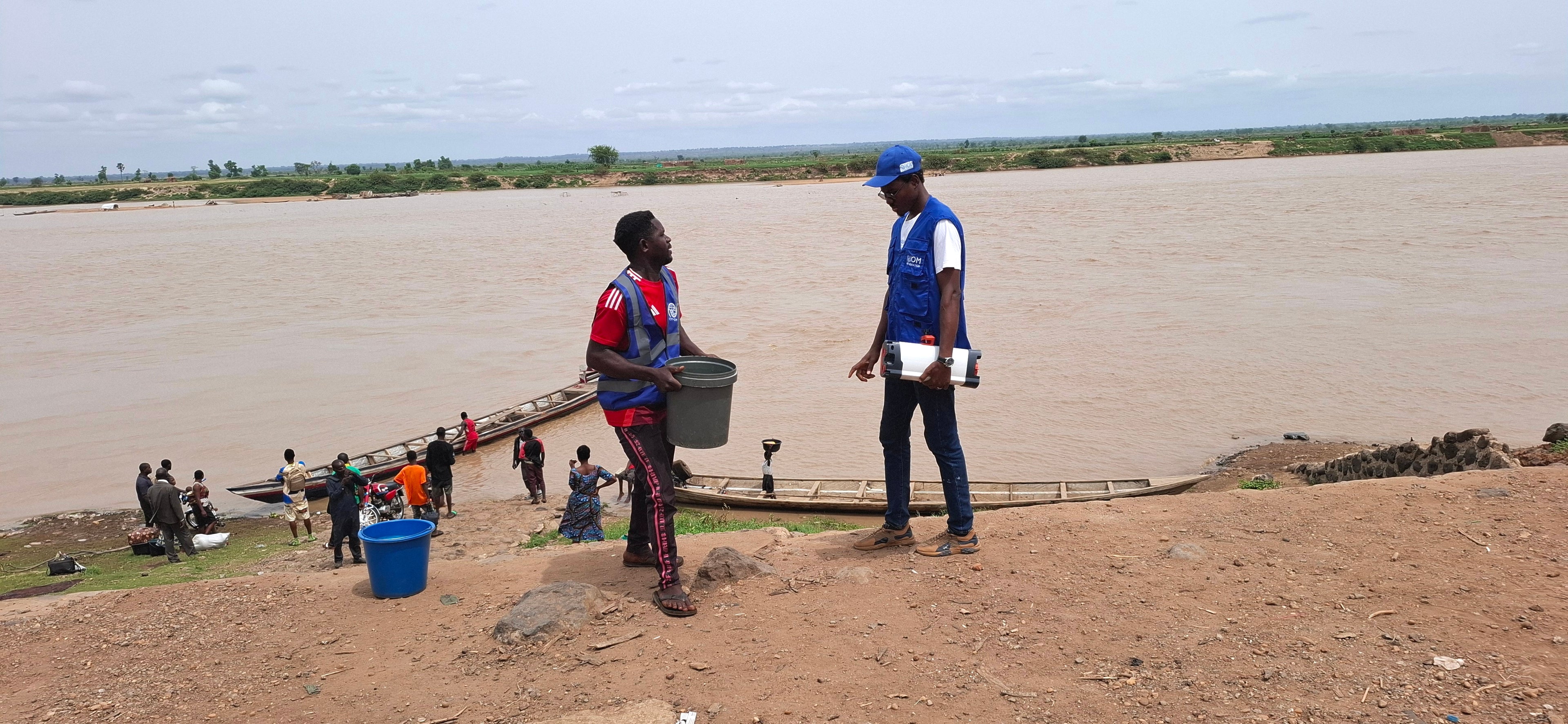
In Nigeria, IOM distributes ORISA® water filters
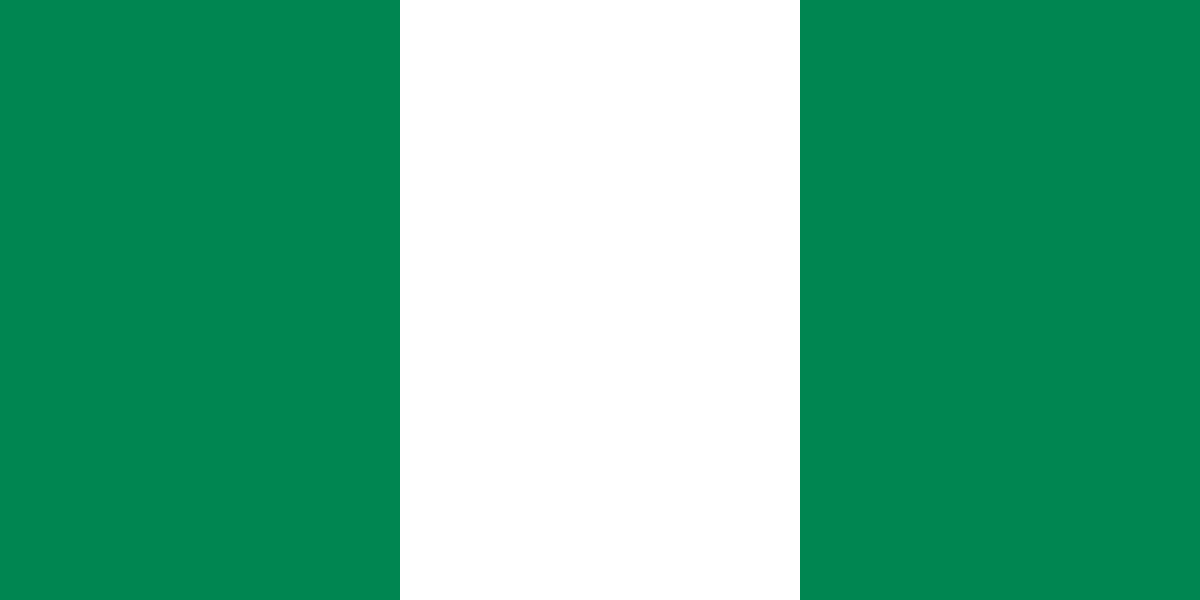
Access to drinking water in Nigeria: a crucial challenge
In Nigeria, more than 70 million people still do not have access to safe drinking water. This shortage particularly affects rural areas and regions affected by conflict, where communities often depend on contaminated sources. The consequences are dramatic: the spread of waterborne diseases, the weakening of livelihoods and increased vulnerability for displaced families.
It is in this context that 10 ORISA® water purifiers were donated to IOM as part of our Karito programme, to be deployed in Nigeria.
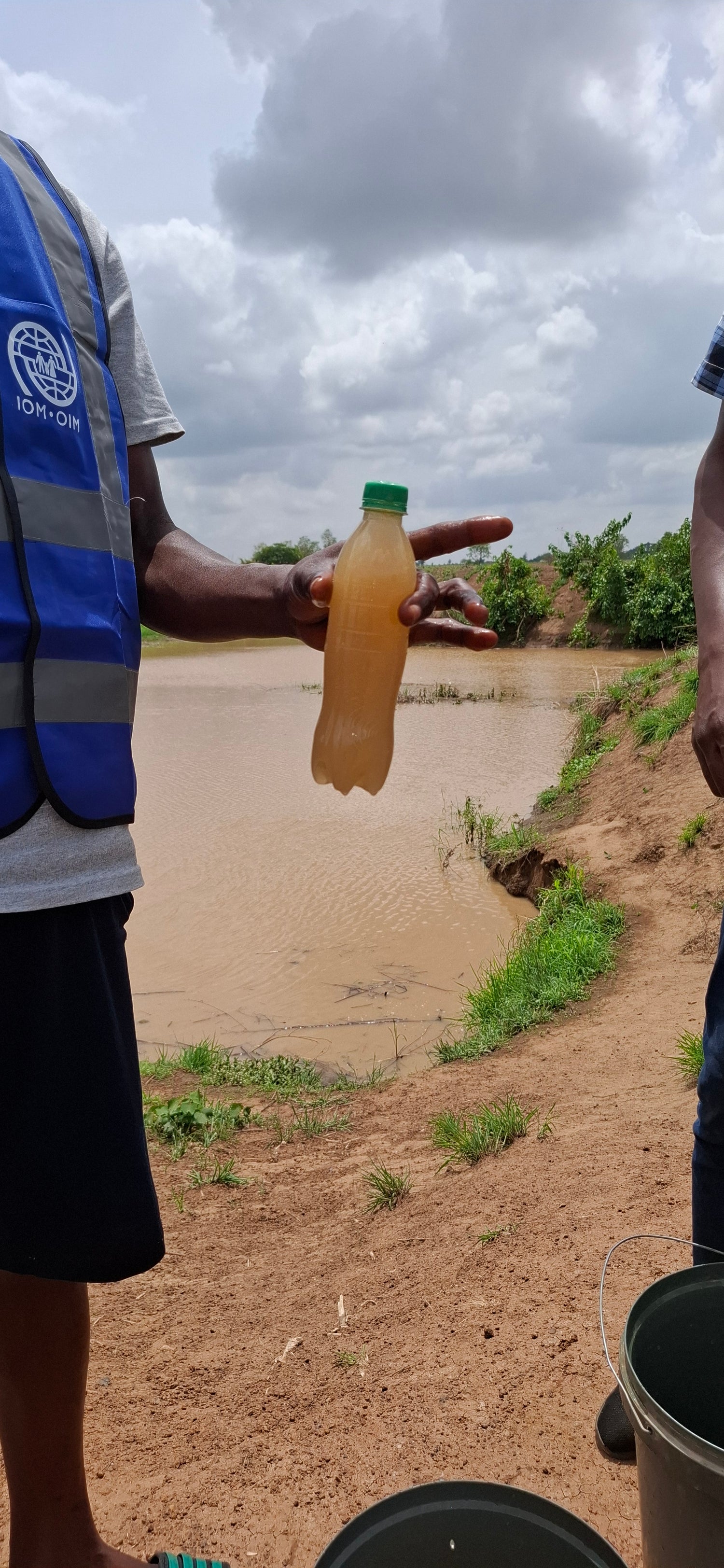
The tangible impact of ORISA® water purifiers in Nigeria
In Gbajimba, in Benue State, the life of Lazarus Ateme, a fisherman, husband and father of four children, has long been marked by the daily struggle to access safe drinking water. For years, his family had no choice but to drink water from the Benue River, despite knowing it was contaminated. The consequences were dramatic: typhoid fever, repeated bouts of diarrhoea, medical expenses that absorbed most of the family's income, and constant fear with every glass of water.
‘We constantly suffered from diseases such as typhoid and diarrhoea, and most of our money was spent on hospital bills rather than food.’
Everything changed when IOM deployed the ORISA® water purifier in his community. Lazarus still remembers his surprise the day he pumped water for the first time with ORISA®: the water had become clear, in stark contrast to the contaminated river water. After just a few weeks, he noticed a dramatic change: no one in his family had fallen ill.
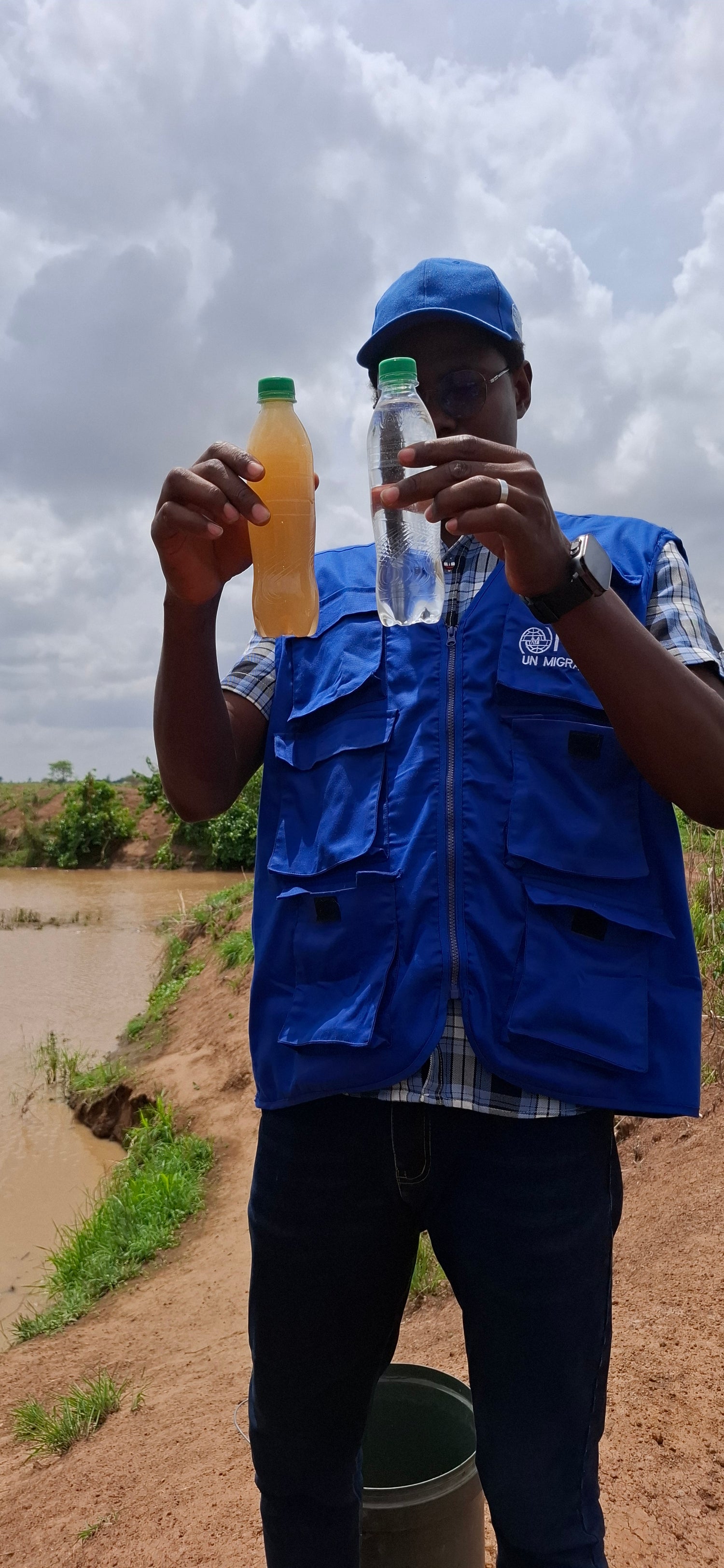
One of the highlights of the IOM project was the announcement of the results of a water analysis: no traces of coliform bacteria were detected in the filtered water. For Lazarus and his family, this meant that the water was clean and safe to drink. ‘We are no longer afraid to drink water.’
The integration of the ORISA® filter into their daily lives has significantly reduced medical expenses. Income can now be spent on food and daily necessities. ‘The filter may seem simple, but for us, it has brought health and dignity,’ explains Lazarus.
This testimony illustrates the concrete impact of ORISA® purifiers. They provide access to safe water and therefore improve the health of beneficiaries. They also ease the financial burden and strengthen the resilience of communities.
-

The IOM team in front of the Benue River
-

Preparation for water filtration with ORISA®
-

Water filtration with the ORISA® purifier
Water filtration technology serving humanitarian causes
In Nigeria, the need for solutions to access clean water is particularly pressing. Affected by more than a decade of conflict, millions of displaced people depend on fragile and often inadequate infrastructure. Water sources are frequently contaminated and inadequately protected. In rural areas, women and children sometimes walk several kilometres every day to collect unsafe water, with direct consequences for their health and education.
Faced with these challenges, ORISA® water filters come into their own. They offer a practical and sustainable solution in environments marked by humanitarian emergencies and a lack of infrastructure:
- High filtration performance: ORISA® ultrafiltration membranes can treat more than 20,000 litres of water at a rate of 3 litres per minute, covering the daily essential needs of schools, entire villages or camps for internally displaced persons.
- Positive impact on public health: ORISA® water filters drastically reduce waterborne diseases such as cholera, typhoid and dysentery, which are particularly common in areas with high concentrations of displaced persons.
- Community resilience: Thanks to ORISA®, users benefit from stable access to a vital resource, reducing dependence on water deliveries and allowing families to regain a certain degree of autonomy and dignity.
In a country where water is a health, social and security issue, the deployment of ORISA® purifiers enables beneficiaries to be more resilient in the face of the global water crisis.
-

Presentation of the ORISA® filter in a village
-

Installing the ORISA® filter in a bucket
-

Water filtration with ORISA®
Towards sustainable access to drinking water, from Nigeria to the rest of the world
The deployment of 10 ORISA® water filters in Nigeria is helping to combat waterborne diseases and water insecurity by directly improving health, reducing medical expenses and strengthening families' resilience. These devices demonstrate that it is possible to provide effective and sustainable responses to the challenges of accessing safe drinking water in humanitarian contexts.
More than 20,000 purifiers have already been deployed in other parts of the world affected by conflict, forced displacement or natural disasters. Each ORISA® used saves lives and paves the way for more sustainable development, which requires secure access to the vital resource of water.
Ensuring universal access to safe drinking water remains a global challenge. However, thanks to tailored solutions such as ORISA® purifiers, entire communities can regain hope and build a more dignified and secure future, in Nigeria and elsewhere.
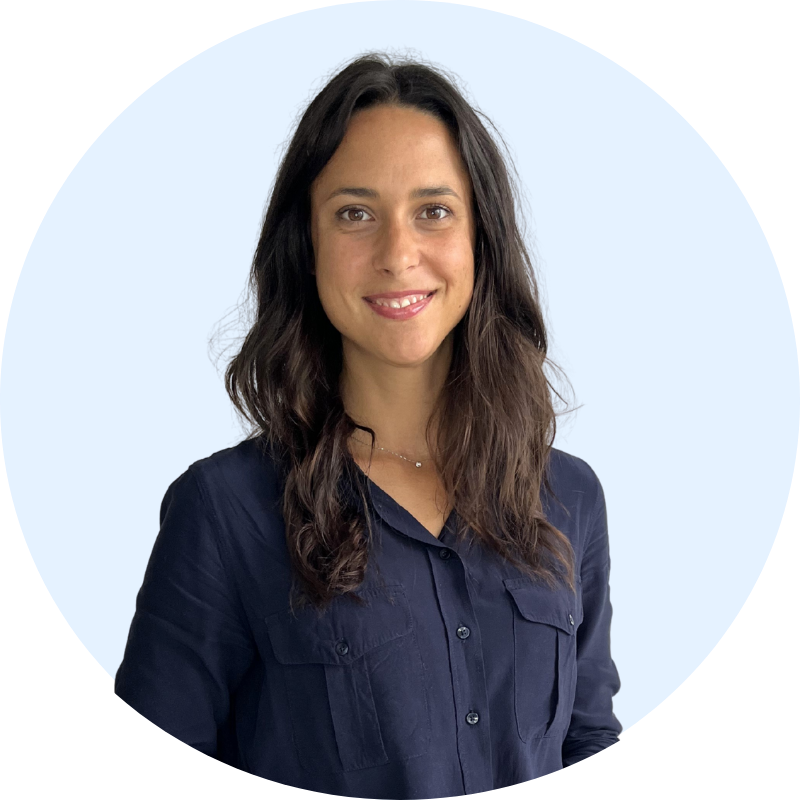
Expertise born from humanitarian experience
ORISA® was designed based on the field experience of former humanitarian worker David Monnier, initially co-founder of the company, and developed in response to specifications established with the involvement of major French and international NGOs: Médecins sans Frontières, Croix Rouge Française, Solidarités International, Médecins du Monde, Handicap International, Terres des Hommes Lausanne, Premières Urgences.
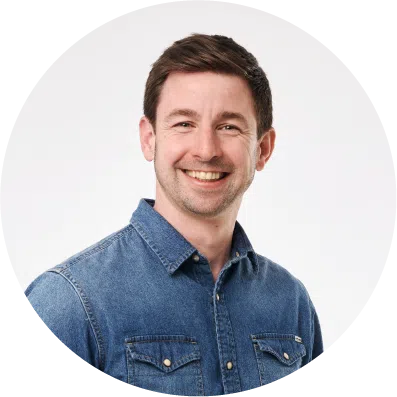
“Adapting and making filtration technologies affordable for everyone, to meet the social and environmental challenges of our time.”
Anthony Cailleau, French representative for projects in Colombia, President and co-founder of Fonto de vivo. Contact person for development aid and international cooperation.








